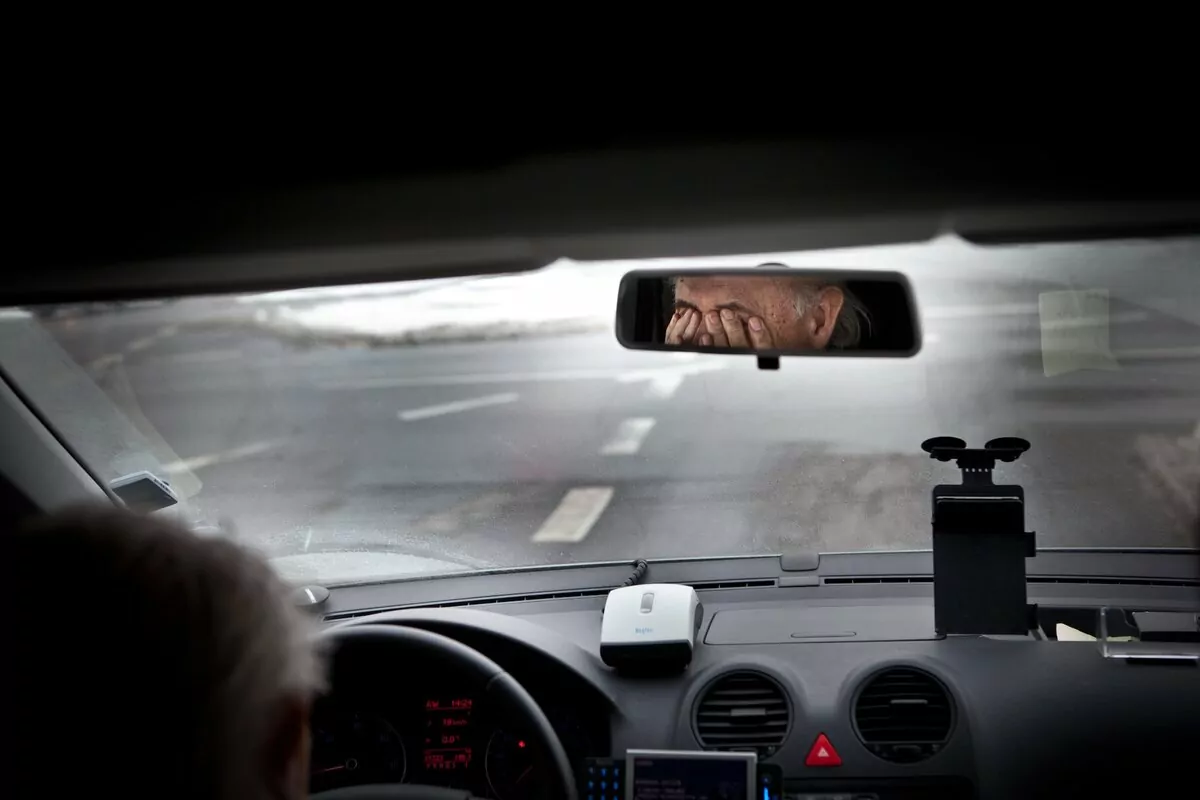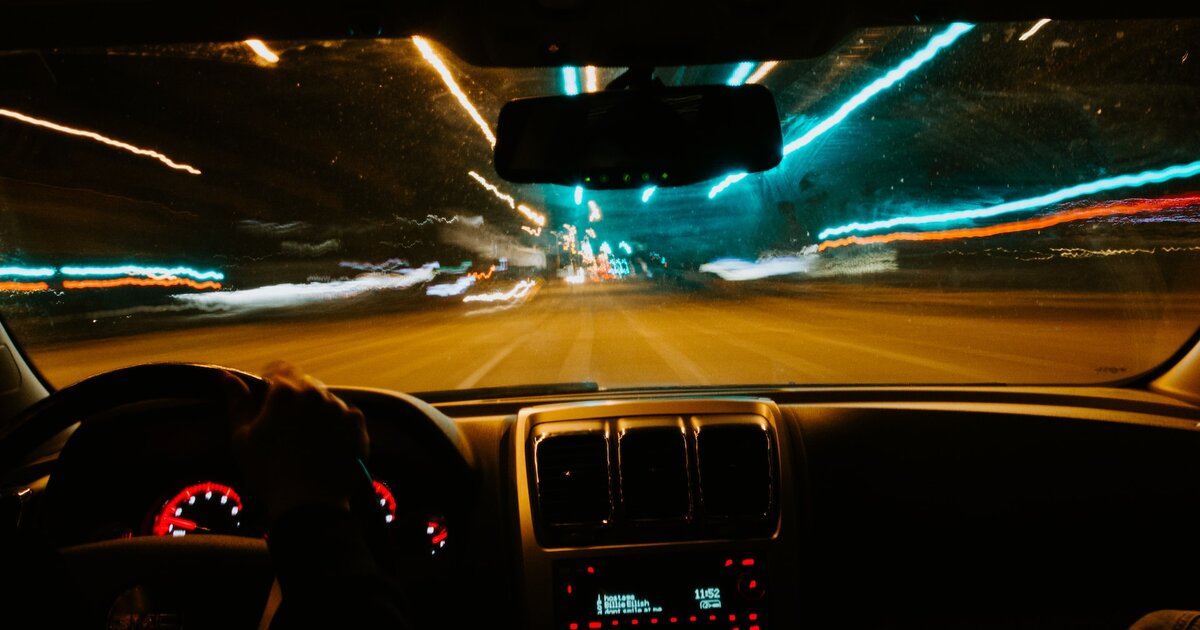A hangover can leave you feeling dizzy, headachy, and tired—symptoms that don’t mix well with driving. Though you might think a good night’s sleep means you’re okay to drive, alcohol’s after-effects can impair your reaction times and decision-making skills long after your last drink. Understanding these impacts is crucial for making safe choices on the road.
On this page:
Is It Safe to Drive Hungover? Understanding the Real Dangers
When you’re hungover, your body is still dealing with the aftermath of alcohol consumption. This can lead to slower reaction times, which are critical when you need to make split-second decisions on the road. Even if you feel okay, your ability to respond quickly to a sudden stop or an unexpected obstacle is likely compromised.
Your concentration can also suffer. A night of drinking can disrupt your sleep, leaving you groggy and unfocused the next day. This lack of attention can be as risky as texting while driving. You’re less likely to notice pedestrians, traffic signs, or changes in traffic patterns when you’re not fully alert.
Coordination is another casualty of hangovers. Alcohol affects the cerebellum, the part of the brain that controls coordination and balance. This can lead to poor control of your vehicle, making it hard to steer or control speed accurately.
Vision issues are a further concern. Alcohol can cause your vision to be blurred or impaired, and these effects can linger into the next day. This means that judging distances between cars, seeing traffic lights change, or noticing a person crossing the street becomes harder.
Finally, decision-making is impaired. Alcohol can make you more likely to take risks you wouldn’t normally consider. When hungover, you may make poor choices, like speeding or ignoring traffic laws, which can lead to accidents or even fatalities.
Can You Drive Hungover? The Legal Repercussions Explained
In the eyes of the law, can you drive hungover and expect to be treated differently than driving under the influence (DUI) of alcohol? Not likely. This is because the effects of alcohol can linger in your system, impairing your abilities even after you’ve stopped drinking.
If you’re caught driving hungover and your driving is erratic or you’re involved in an accident, law enforcement can conduct field sobriety tests. If these tests, which include tasks like walking in a straight line, indicate impairment, you may be arrested. Moreover, if a breathalyzer or blood test shows that your blood alcohol concentration (BAC) is still above the legal limit of 0.08%, you could be charged with a DUI.

The penalties for hungover driving can mirror those for drunk driving, depending on the state and the severity of the offense. These penalties might include fines, loss of driving privileges, mandatory attendance at alcohol education programs, and even jail time. The charges become more severe if hungover driving results in an accident, especially if it causes injury or death.
Even if your BAC is below 0.08%, you could still face charges like driving while ability impaired (DWAI) if your driving suggests you’re not fully fit to drive. This can lead to similar legal actions as a higher BAC level.
It’s also worth noting that a DUI or DWAI can stay on your record and potentially impact your employment opportunities and insurance rates.
How Alcohol Affects Your Body and Driving Ability the Next Day
When you drink, alcohol is absorbed into your bloodstream, affecting your brain and nervous system. This can slow down your reaction time and weaken your coordination. Even after you’ve stopped feeling “drunk,” these effects can remain.
The liver works to break down alcohol with an enzyme called alcohol dehydrogenase, but it can only process about one standard drink per hour. If you’ve had more than this, your liver will be working overtime while you sleep, and there may still be unprocessed alcohol in your system the following day.
This unprocessed alcohol, along with the byproducts of your liver breaking down what it can, can make you feel groggy or even still a bit intoxicated the next morning. That grogginess is a sign that your body is not yet back to normal, making activities like driving more dangerous.
For instance, your eyes might not focus as quickly, which is crucial when judging distances and responding to changes on the road. Your decision-making skills may be compromised, as alcohol affects the cerebral cortex, which is responsible for processing information and reasoning. The cerebellum, which helps with coordination, is also impacted, making it more challenging to perform the multitasking required for driving, like steering while monitoring mirrors.
The feeling of being hungover itself, which includes symptoms like headaches or dizziness, can distract you from the road and further impair your driving. It’s not just about whether you feel drunk; it’s about whether your body has fully recovered from the alcohol’s effects. Even if you’re legally under the blood alcohol concentration limit, if your driving is impaired, you’re a risk on the road.
Recognizing Hangover Symptoms That Impair Driving
One common symptom is fatigue. After a night of drinking, your body works hard to process the alcohol, which can leave you feeling tired even after a full night’s sleep. This fatigue reduces your reaction time and alertness, making it harder to respond quickly on the road.
Headaches are also a telltale sign of a hangover. The pain can distract you and make it difficult to concentrate, which is necessary for making split-second decisions when driving. Additionally, dehydration from alcohol consumption can cause dizziness and lightheadedness, further affecting your driving ability.
Many people experience nausea and stomach upset during a hangover, which can be both uncomfortable and distracting. The unease might make it hard to focus on the task of driving and can even lead to vomiting, which is obviously unsafe if it occurs while behind the wheel.
Hangovers can also affect your vision. Alcohol disrupts how your brain processes information, including visual cues. You might experience blurred vision or sensitivity to light, both of which hinder your ability to read road signs, see pedestrians, or judge distances accurately.
Your cognitive functions take a hit when you’re hungover. Alcohol impairs your judgment, memory, and decision-making skills. Even if you feel like you’re capable of driving, these cognitive impairments can lead to poor choices on the road, increasing the risk of accidents.
Prevention Tips to Avoid Driving After Drinking
When planning a night out that includes alcohol, arranging a safe way home is crucial. Opting for a designated driver, who commits to not drinking, ensures there’s someone reliable to drive. If this isn’t an option, there are various alternatives. Ride-sharing apps and taxi services offer a safe ride at any hour, eliminating the temptation to drive. Public transportation, while not always available late at night, is a viable choice earlier in the evening.

Setting a limit on alcohol intake and keeping track of consumption can also help. Drinking water between alcoholic beverages slows down the pace of drinking and helps maintain hydration, which may reduce the severity of a hangover. Eating a substantial meal before drinking can slow down alcohol absorption, providing some buffer against its effects.
For those who still choose to drink, planning to stay overnight at a friend’s place or booking a room within walking distance allows for a night of fun without the worry of getting behind the wheel. Also, having a conversation with friends about the risks of driving hungover can encourage a collective effort to make responsible choices.
Purchasing a personal breathalyzer to check blood alcohol concentration (BAC) levels can provide a clear indicator of whether it’s safe to drive. However, it’s important to remember that even if the BAC is below the legal limit, impairment and hangover effects might still be present. Regarding the question ‘is it safe to drive hungover’, it’s always safer to wait or to find an alternative way home if there’s any doubt about sobriety.
What to Do If You’re Involved in an Accident With a Hungover Driver
First, it’s important to assess yourself for any injuries. If you’re hurt, try to stay calm and call 911 for medical assistance. If you’re able to move, check on others involved in the accident and offer help if needed.
Next, ensure you are in a safe place away from traffic. If the cars are causing a hazard and can be moved, it’s usually best to do so. However, if the vehicles can’t be moved or if moving them might cause further injury, turn on hazard lights to warn other drivers.
Exchange information with the other driver, including names, contact details, insurance information, and license numbers. Avoid discussing fault or details of the accident at this stage, as anything you say could be used in legal proceedings. Instead, focus on gathering facts.
Document the scene by taking photos of the vehicles, surrounding area, and any visible injuries. These can be crucial for insurance claims or legal purposes. If there are any witnesses, ask for their contact details as well.
Call the police to report the accident, even if it seems minor. A police report can be vital for insurance claims and will document the incident officially. When the police arrive, explain what happened clearly and mention any suspicion that the other driver might be hungover. Signs like the smell of alcohol, bloodshot eyes, or erratic behavior can indicate impairment.
After the initial response, contact your insurance company to report the accident. Follow their instructions, and consider seeking legal advice, especially if you suspect the other driver’s hangover contributed to the accident. A legal professional can guide you through the process and help protect your interests.
Navigating the Legal Landscape After a DUI Charge for Hungover Driving
Each state has its own set of laws, but generally, a DUI charge can lead to serious consequences, including fines, license suspension, and even jail time. After an arrest, the first step is usually an arraignment, where charges are formally presented. It’s at this point that you’ll enter a plea.
If you plead not guilty, the case may proceed to a pre-trial conference or hearings, where your attorney can negotiate with the prosecutor or argue pre-trial motions. These motions can challenge the validity of the evidence against you, such as the accuracy of a breathalyzer test or the legality of a traffic stop.
Should the case go to trial, the prosecutor must prove you were impaired while driving, which can be more challenging with hangover symptoms as opposed to active intoxication. However, impairment is impairment in the eyes of the law, and lingering effects from alcohol can still lead to a DUI conviction.
Throughout this process, hiring a lawyer experienced in DUI cases is vital. They can guide you through the complexities of the legal system and work to minimize the impact on your life. For instance, they may help you obtain a provisional license so you can drive to work or school.
In some states, you might have the option to attend DUI school or substance abuse treatment programs which could potentially reduce your charges or penalties.
Essential Steps to Take If Arrested for Driving Hungover
If you’re arrested for driving hungover, it’s crucial to act promptly. First, remain calm and respectful to law enforcement officials. Request to speak with a lawyer immediately to understand your rights and the charges against you. Do not admit guilt or make any statements without your attorney present. Follow all legal instructions, including taking a chemical test if asked, as refusal can have serious consequences. Record the details of your arrest and any symptoms you were experiencing, as this information can be important for your defense. Lastly, attend all court appearances and consider enrolling in a DUI education program, which may positively influence your case. Remember, the steps you take following an arrest can impact the outcome significantly.
